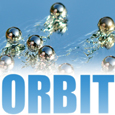| Resource details
|
| Title |
Primary Science Investigation
|
| Topic |
[[Topics/Science|Science]]
|
| Teaching approach |
[[Teaching Approaches/Dialogue|Dialogue]], [[Teaching Approaches/Practical work|Practical work]], [[Teaching Approaches/Knowledge building|Knowledge building]], [[Teaching Approaches/Higher order|Higher order]], [[Teaching Approaches/Group work|Group work]], [[Teaching Approaches/Inquiry|Inquiry]], [[Teaching Approaches/Reasoning|Reasoning]], [[Teaching Approaches/Discussion|Discussion]], [[Teaching Approaches/Planning|Planning]], [[Teaching Approaches/Scientific method|Scientific method]]
Property "Teaching approach" (as page type) with input value "The resource consists of a number of sheets including a description of the process of doing an investigation for enquiry based learning. Teachers could share lesson ideas using the table and ideas regarding the types of skills pupils must engage (e.g. observing). The resource also includes a set of learning goals centred on the investigation skills (observing" contains invalid characters or is incomplete and therefore can cause unexpected results during a query or annotation process.[[Category:The resource consists of a number of sheets including a description of the process of doing an investigation for enquiry based learning. Teachers could share lesson ideas using the table and ideas regarding the types of skills pupils must engage (e.g. observing). The resource also includes a set of learning goals centred on the investigation skills (observing]]Property "Teaching approach" (as page type) with input value "Etc.) and a sheet with some different ideas for exploring types of practical work in science. Both these sheets could form the basis of a discussion or brainstorming session to apply the types and skills given to different content areas. The resources have an emphasis on encouraging pupils to think scientifically – using higher order thinking skills – and the use of group talk and dialogue to facilitate knowledge building." contains invalid characters or is incomplete and therefore can cause unexpected results during a query or annotation process.[[Category:etc.) and a sheet with some different ideas for exploring types of practical work in science. Both these sheets could form the basis of a discussion or brainstorming session to apply the types and skills given to different content areas. The resources have an emphasis on encouraging pupils to think scientifically – using higher order thinking skills – and the use of group talk and dialogue to facilitate knowledge building.]]
|
| Learning Objectives |
By the end of the session you should be able to:
- Identify the process involved in ‘carrying out an investigation’ – before, during (gathering evidence), and after
- Identify some different types of practical work in science projects (classification, pattern seeking, fair testing, etc.)
- Identify some achievement levels in practical work and the sorts of goals these relate to – e.g. different levels of achievement at ‘predicting’
|
| Subject |
[[Resources/Teacher Education|Teacher Education]], [[Resources/Science|Science]]
|
| Age of students / grade |
[[Resources/Primary|Primary]]
|
| Files and resources to view and download |
|


